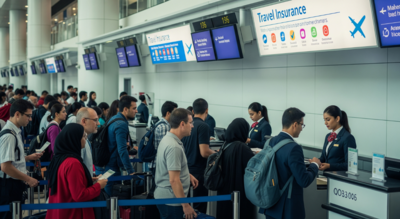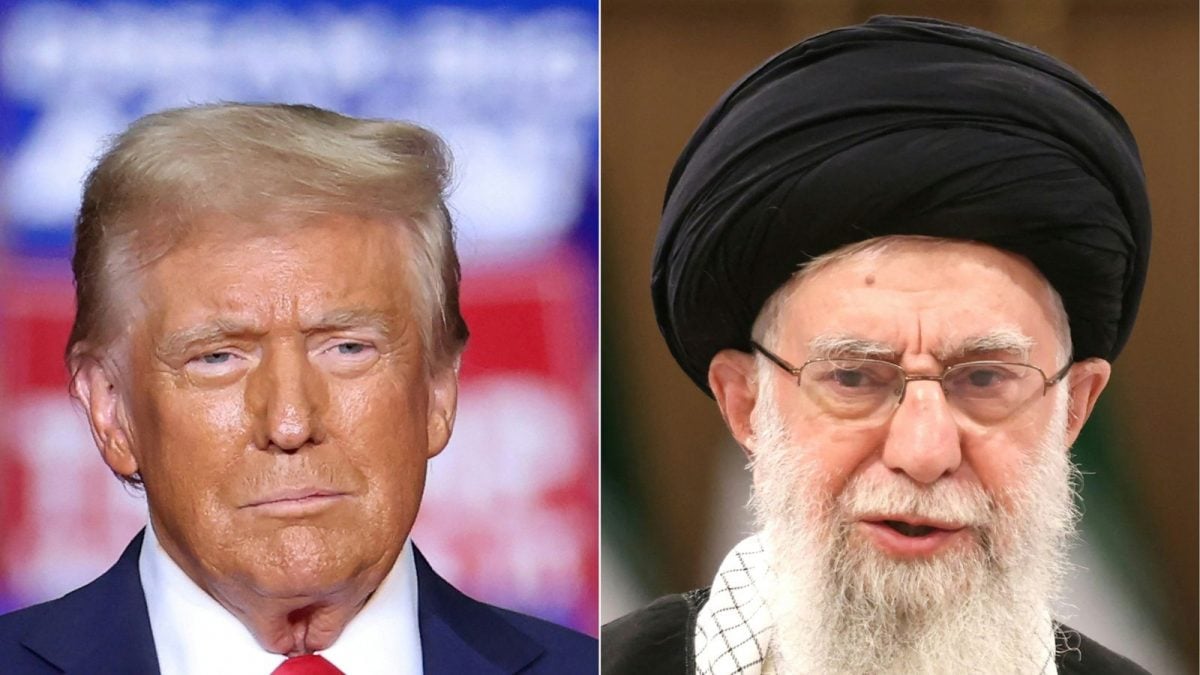ARTICLE AD BOX

Most UAE travellers’ insurance policies do not cover claims related to war or conflict, so checking coverage details is crucial before travel. (Representational Image/ AI for creative and illustrative purposes only)
Recent upheavals in the Middle East, including missile exchanges between Israel and Iran, have led to significant travel disruptions. For UAE travellers, this has sparked a growing interest in travel insurance, as many seek protection against unexpected events like flight cancellations and delays.
Yet, understanding what travel insurance actually covers, especially in cases of war or geopolitical conflict, is crucial before booking that next trip.
Travel Disruptions and Shifting Plans
Following the escalation of armed conflict in the region, UAE airlines have extended flight cancellations to key destinations including Iraq, Jordan, Lebanon, Iran, and Israel. Many travellers from the UAE have had to make last-minute changes to their itineraries, either switching destinations or opting for countries where air travel remains unaffected to avoid delays on their return trips. Despite these challenges, summer travel plans are still in motion for many Emiratis and expatriates. For them, travel isn’t just leisure, it’s a family tradition and a vital part of their lifestyle. However, it is important to note that most standard travel insurance policies do not cover claims arising directly from geopolitical unrest or military conflict.
What Does Travel Insurance Cover?
Speaking to a local news agency, Khaleej Times, Toshita Chauhan, Chief Business Officer- General Insurance at Policybazaar.ae, explained that “Claims arising directly from geo-political unrest or military conflict remain excluded under typical policy terms.”
She further clarified, “A standard travel policy offers financial protection against baggage loss, medical emergencies, trip delays, and cancellations but does not provide compensation for in-flight events or operational airline failures unless linked to broader delays or trip curtailment.” Chauhan emphasized that travel insurance still plays a critical role in addressing other common travel issues: “For problems like missed connections, baggage delays, or last-minute cancellations due to operational failures, travel insurance is proving to be an important safeguard.” She noted a rising trend, stating, “Recent travel disruptions across the Gulf, especially flight delays, cancellations, and temporary airspace closures, have contributed to a perceptible uptick in demand for travel insurance, with trip cancellation and flight delay coverage becoming some of the most searched-for features.”
The Impact of Recent Events on Travel Insurance Demand
Another factor contributing to increased interest in travel insurance was the tragic Air India plane crash.
According to Chauhan, “The Air India incident has undoubtedly triggered a rise in consumer interest but with an important distinction. What many travellers are looking for is flight protection or airline coverage, which differs from traditional travel insurance.” She added, “We’ve seen a spike in queries related to coverage scope, indicating that travellers are more discerning now—they are asking the right questions and seeking clearer coverage terms before purchasing.”
Travel Insurance: Increasingly Important and Often Mandatory
While not every country mandates travel insurance, there is a clear global shift toward stricter health and financial safeguards for visitors, especially since the pandemic. Chauhan pointed out, “Countries within the Schengen zone, for instance, require travellers to have a minimum coverage of €30,000 (Dh126,387) for medical emergencies. Similarly, destinations like Thailand, Turkey, and certain Gulf nations have introduced mandatory travel insurance policies for specific visa categories.” She stressed, “The global trend is clearly shifting toward stricter health and financial safeguards for visitors, and travel insurance plays a critical role in this framework.” For many UAE travellers, purchasing insurance is more than just a precaution, it’s a smart financial decision. “With rising international medical costs, a single hospitalisation abroad can run into thousands of dollars,” Chauhan said.
“Travel insurance offers comprehensive protection against such expenses, including emergency medical treatment, trip cancellations, baggage loss, flight delays, and even Covid-19-related disruptions.
” Additionally, several foreign embassies across Europe, North America, and parts of Asia now require proof of travel insurance as part of the visa application process. UAE expats visiting their home countries increasingly include travel insurance as a necessary part of their travel checklist, mindful of the risks posed by unexpected medical emergencies or travel mishaps even during short visits.
Rising Costs of Travel Insurance in the UAE
Even before the recent escalation in Middle East tensions, travel insurance premiums in the UAE were already rising sharply. According to data from Policybazaar UAE, premiums have increased by 12 to 18 percent year-on-year. This surge translates to an added cost of between Dh15 and Dh70 per policy, depending on factors such as trip duration, destination, and the traveller’s age. Hitesh Motwani, Deputy CEO at Insurancemarket.ae, told Khaleej Times, “There are tailored policies that allow travellers to choose coverage that fits their specific needs and financial plans.” Despite these increases, Motwani reassured travellers: “Travel insurance remains relatively affordable on a per-trip basis.”
Summary for UAE Travellers:
- War and conflict-related claims are generally excluded from standard travel insurance policies.
- Travel insurance covers medical emergencies, baggage loss, trip delays, cancellations, and some operational airline failures.
- Demand for travel insurance is rising due to regional instability and high-profile incidents like the Air India crash.
- Many countries require travel insurance as part of visa entry rules, particularly in the Schengen zone and some Gulf countries.
- Travel insurance is a smart financial safeguard against rising medical and travel-related costs abroad.
- Premiums have increased by up to 18% in the UAE, but affordable tailored options remain available.
Travellers are encouraged to carefully review the terms of their insurance policies, understanding exactly what is covered, especially in uncertain times, and to plan their travel with these considerations in mind.



.png)
.png)
.png)
















 4 hours ago
5
4 hours ago
5









 English (US) ·
English (US) ·